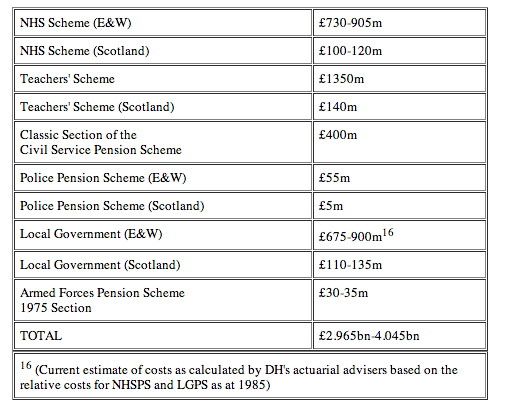Gay marriage bill: will civil partnership amendments cost £4 billion?
"The Government has suggested that extending civil partnerships would hit the Treasury with an extra £4 billion in pension liabilities." The Telegraph, 20 May 2013
This article has been updated. See below.
After the European referendum, the latest headache for the coalition has been brought about by the hoo-ha surrounding the new same sex marriage bill. In a time of economic instability and public sector cuts, can the country afford to extend the same right to all couples?
Recently, there have been talks to introduce civil partnerships for opposite-sex couples after an amendment was tabled by Conservative former families minister Tim Loughton, who opposes same-sex marriage.
The 2004 Civil Partnership Act created a union which is very similar, though not identical, to marriage. Civil partners have the same rights as married couples in many areas which include tax, social security, inheritance and workplace benefits.
Critics fear that passing an amendedment to introduce these benefits for all couples would delay the bill, and postpone the legalisation of gay marriage. They have also raised the issue of costs.
Maria Miller, Secretary of State for Media, Culture and Sports, has suggested on the Today Programme this morning that amending the Same-Sex Marriage bill to include civil partnerships for straight couples would be too expensive. To the tune of £4 billion in occupational pensions and survivor benefits. However the Minister didn't give the source for the figure or say how the sum was calculated.
What do the the balance sheets say?
We asked the Department for Culture, Media and Sport but they were unable to provide us with precise information or evidence that would back up the claim. Instead we were told the estimates relate to the cost of equalising survivor benefits for widowers and widows "across the public service schemes."
They also told us that the figure was first mentioned at a meeting last week of the Joint Committee on Human Rights by the Pensions Minister Steve Webb.
This is what he said:
Chair, just to think through the pensions space, if you allowed opposite-sex couples to form a civil partnership, the question then would be if their pension rights, in respect of each other, look like those of a married opposite-sex couple. There would be a strong argument for that. I do not know what the Government would decide but, if it decided that, you would have a whole set of people who at the moment have no survivors' pension rights at all who would suddenly have survivors' rights. It is pretty clear that, as soon as you have gone down that route, you might end up in a position of full equality, for example, for widowers expecting the same rights as widows. We have costed that of the order of £3 billion to £4 billion cost to public service pension schemes. Once you have opened that up that is one potential scale of impact. [Emphasis added]
Of course, this doesn't tell us anything more. Shiv Malik from the Guardian has also been chasing this story, and was told by the Treasury today that the £3-4 billion cost figure for the amendment is "illustrative". It's unclear whether this is a back-of the-envelope calculation or an estimate based on an in-depth level of detail and supported by extensive research.
We have put in an FOI request to both the Treasury and the DWP to find out how the calculation was made and whether it is sound. We will update this factcheck as soon as we hear back.
Update: The Treasury has told the Guardian the figure of £3-4bn is the estimated cost of equalising survivor benefits for widowers and widows across the public service schemes, and it originates from the July 2011 judgement of Cockburn v. The Secretary of State for Health (see paragraph 23). In this legal battle, a widower sued his late wife's employer because his widower's pension was £3,200 per year less than a woman would receive in the same circumstances.
The figure - calculated by the Government Actuary's Department - gives an indication of the scale of the costs arising from the creation of additional pension entitlements for individuals who are not entitled to them.

The Treasury has said that this was merely a "figurative example" used by ministers to "exemplify what happens when you start to run into equalising rights for people."
Still, it's somewhat surprising that Ministers have been touting this figure in relation to civil partnership given that, on the face of it, this costing relates to something else entirely.
In the case being cited, this involved applying changes to survivor's pensions to backdated claims. This is a more wide-ranging prospect, and it would go far beyond reforming pensions schemes to include opposite-sex civil partners.
What does this tell us about the cost of implementing civil partnerships for all? For the moment, it doesn't tell us anything because we don't know what portion of this cost would be accounted for by civil partnerships for opposite sex couples. We are going to put in another FOI to the Treasury to find out.
---
Flickr image courtesy of Melody Kramer